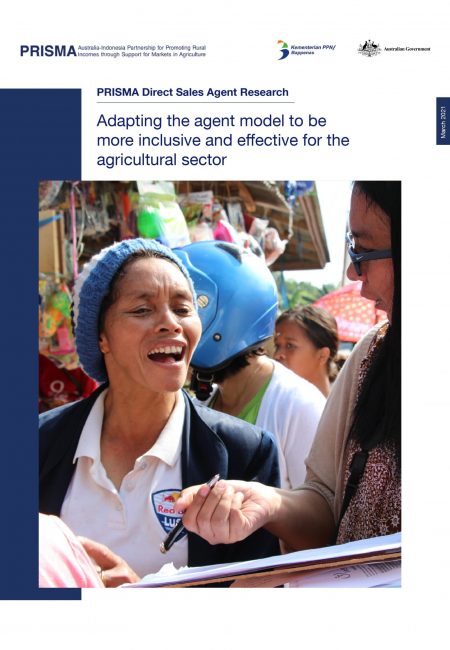For more than a decade, development programs have partnered with the private sector to adopt direct sales agent (DSA) models – like those made famous by Avon and mobile network operators – to serve different sectors (e.g. agriculture, energy, health) and markets (e.g. rural, peri-urban). Results, however, have been mixed. Modifying DSA models to serve a different market segment can be challenging for development programs as research shows that the model is best suited for established, yet underserved markets with easily accessible and knowledgeable customers, which are not features of most development environments.
The purpose of this brief is to identify practical design considerations for inclusive agricultural DSA models. The brief draws from recent research on DSA models from Indonesia and Ghana, and in particular recommendations from the foundational 2010 SHOPS study, which examined DSA models in the health sector that are easily adapted to the agricultural sector.

